The James Dyson Award has announced its three global winners, including an off-road trailer ambulance, a hands-free IV device and a sustainable exterior wall coating.
Every year, entrants are faced with the same brief: to design something that solves a problem. This year’s International winner, Sustainability winner, and Humanitarian winner looked to solve different issues, from medical care in war and disaster zones to weather-related environmental issues. Each will receive £30,000 to support the next stages of their inventions.
International winner
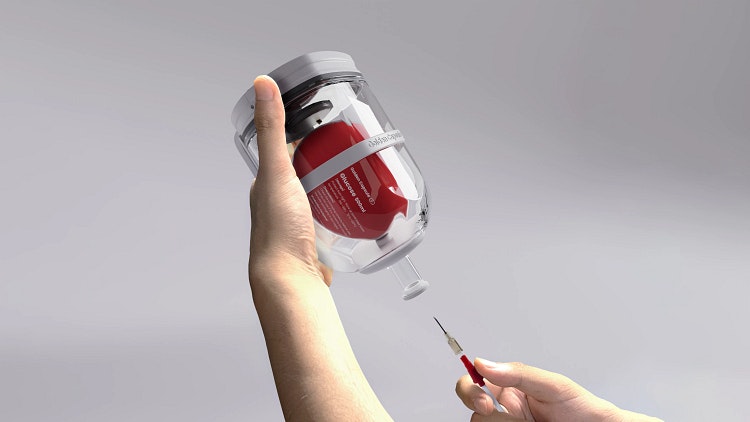
Yujin Chae, Daeyeon Kim, Yeonghwan Shin and Yuan Bai became Korea’s first global winners secure prize for their invention of The Golden Capsule, a hands-free intravenous (IV) device for use in disaster zones.
The Turkish-Syrian earthquakes in February 2023 resulted in over 55,000 casualties, with a further 100,000 injured and the inventors noted how throughout the evacuation process medics were navigating harsh environments while carrying several IV packs in their hands. Their solution is a non-powered and hands-free IV device designed to use elastic forces and air pressure differences rather than gravity.
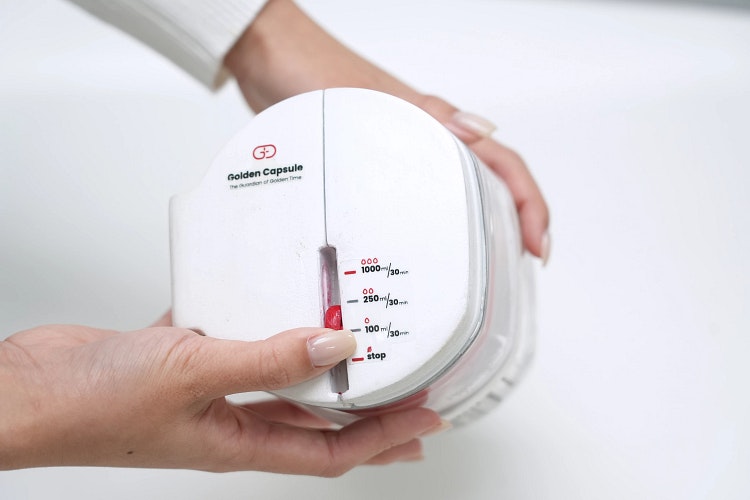
This means that medics in disaster zones don’t have to hold up IV packs while transporting patients, and electricity is not required to control the infusion rate. Dyson founder and chief engineer James Dyson notes how the device uses “a pressurised bladder, which can be positioned anywhere, such as strapped to the patient’s side”. It works by slowly deflating and “pressurising the drip into the patient, leaving medics free to perform other life-saving work,” Dyson explains.
With the prize money, the team plan to conduct prototype improvements and user tests in collaboration with medical experts and in future have their invention mass produced.
They hope that The Golden Capsule will become “the new standard for IV packs” in hospitals as well as in emergency situations.
Sustainable winner
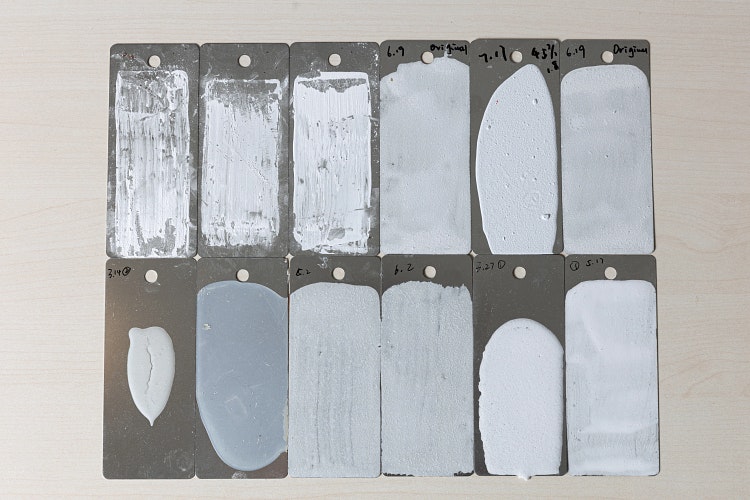
A sustainable exterior wall coating with a high cooling effect designed to reduce the environmental costs of air conditioning won the Sustainable prize. Hong Kong SAR’s Hoi Fung Ronaldo Chan and Can Jovial Xiao are responsible for the invention of E-Coating.
According to research found by the design team, air-conditioning accounts for almost a third (31%) of total electricity consumption in Hong Kong SAR, and over 470,000 glass bottles end up in landfills every day.
Read more: This mucus management device performs patients’ chest therapy at home
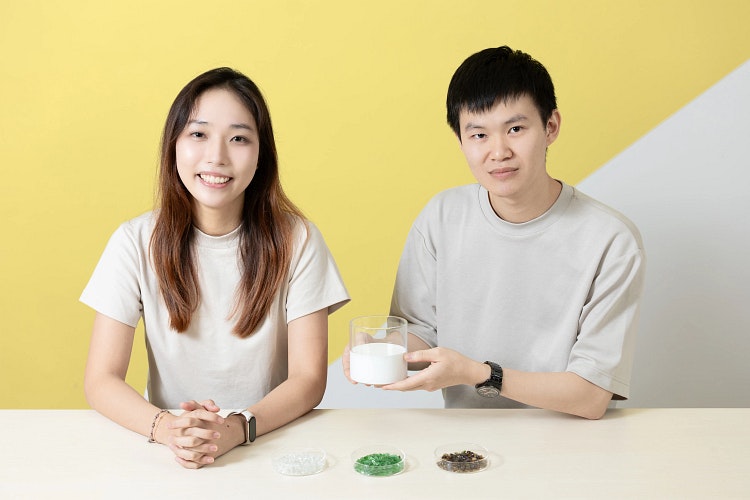
E-Coating is an eco-friendly solution that looks to solves both of these problems. Made from recycled waste glass, the coating can be applied to exterior roofs and walls and works by reflecting sun rays and reducing the heat absorption of buildings. In turn, this reduces the amount of electricity consumed by cooling systems like air-conditioning and reduces greenhouse gas emissions.
Next steps involve advancing E-Coating’s adhesion and ease of application as well as investigating new formulas for indoor use. The inventors add that the prize money will allow them to start a company to take their invention to the next level.
Humanitarian winner
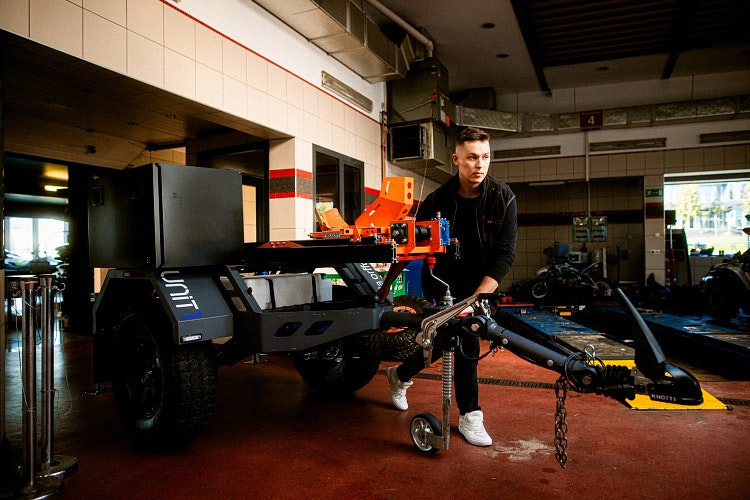
Polish inventor Piotr Tłuszcz won a special humanitarian prize for The Life Chariot, an off-road trailer ambulance for universal towing that has been used by medics in Ukraine. Tłuszcz had noticed the challenges of executing medical evacuations across rough terrain, inspiring him to design a medical evacuation off-road ambulance that can attach to any hook-equipped vehicle.
Its low weight and suspension makes it safer for a casualty to travel in The Life Chariot, rather than the boot of a car, according to Tłuszcz. His interest in designing trailers started with off-road trips with his family through the Balkans and Pyrenees and he spent his bachelor’s and master’s degrees designing off-road and cave-rescue trailers, before creating The Life Chariot.
Read more: Sensory wound dressing scoops James Dyson Award 2022
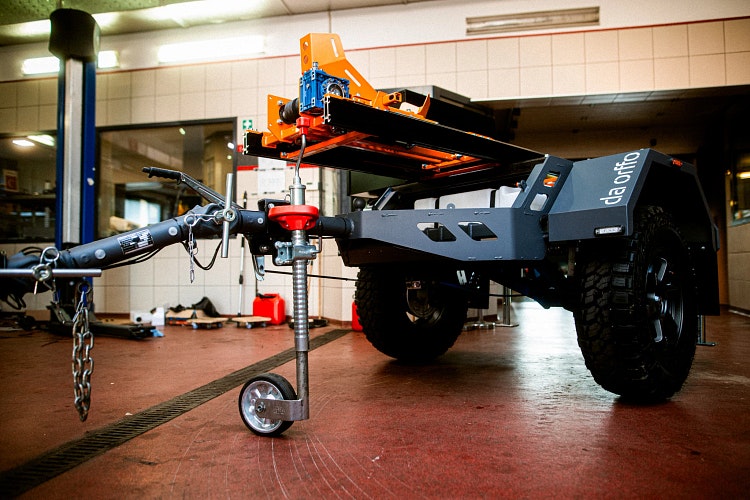
The Life Chariot also looks to increase the evacuation capabilities of rescue teams by adding room for one injured person on a stretcher and two more seats for medics or the less severely wounded. After being tested in terrains such as mountain trails, forests, caves and mines, the initial two trailers were given to the Ukrainian Medical Military Unit and the Polish Voluntary Medic Unit of Damian Duda W Międzyczasie Foundation.
Tłuszcz will continue to upgrade the design of The Life Chariot based on feedback received from medics working on the front line. He is also working on adapting the vehicle for mountain rescue purposes.

- Design disciplines in this article
- Industries in this article










